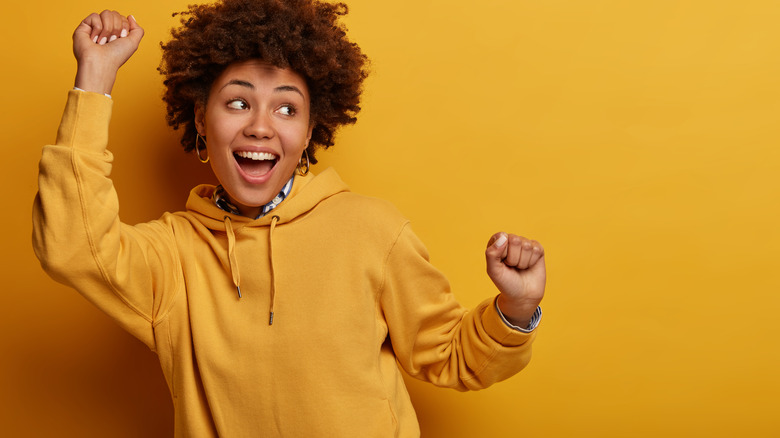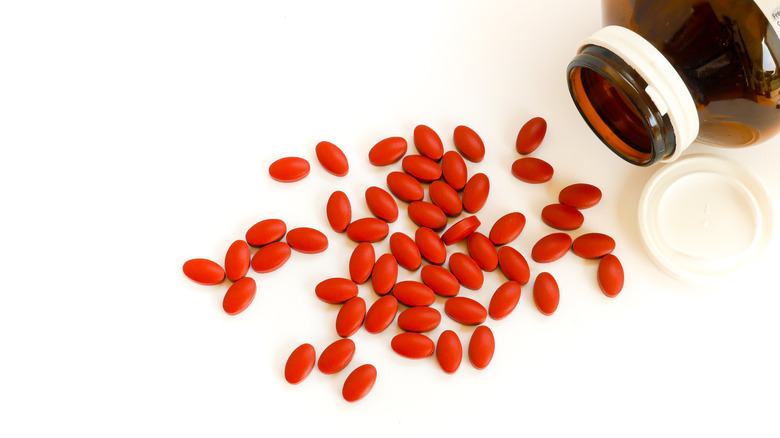Does Iron Give You Energy?
Iron is an essential nutrient that your body needs to perform many functions. Verywell Health explains that iron helps your body produce collagen, strengthens your immune system, and aids in brain development. Iron also helps the body make hemoglobin, which helps transport oxygen throughout your body. According to Healthline, a lack of hemoglobin in your blood makes your heart work harder, which can leave you feeling fatigued.
You may have heard that if you are low on iron, you could develop a condition called iron deficiency anemia. It is one of the most common deficiencies in the world, per Verywell Health, and it can cause a fast heart rate while leaving you lightheaded and short of breath. But one of the more notable signs of anemia is feeling tired. If iron helps your blood deliver oxygen to the rest of your body, will adding extra iron to your diet give you energy?
Iron can increase your energy levels over time
According to Verywell Health, if you have been diagnosed with iron deficiency anemia or if you have low iron levels, increasing the amount of iron in your diet can reduce fatigue. It may take some time, however. Cleveland Clinic explains that if you take supplements, it can take anywhere from one week to one month to feel better.
Adding foods high in iron to your diet is a good way to give your body the iron it needs. Red meat, spinach, kale, raisins, peas, beans, seafood, and nuts all contain iron, per Healthline. Your doctor may also recommend taking an iron supplement.
For best absorption, it's good to take iron supplements on an empty stomach, but if you find that it upsets your stomach, it is okay to take iron with food. Avoid taking iron with caffeine, milk, antacids, or calcium supplements because these items can reduce the amount of iron your body absorbs. If you decide to eat while taking your iron supplements, adding foods that contain vitamin C will increase how much iron your body absorbs, per Cleveland Clinic.


